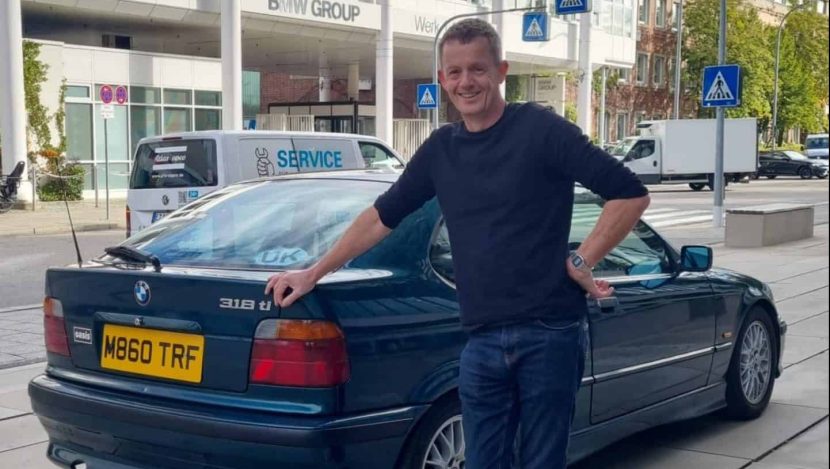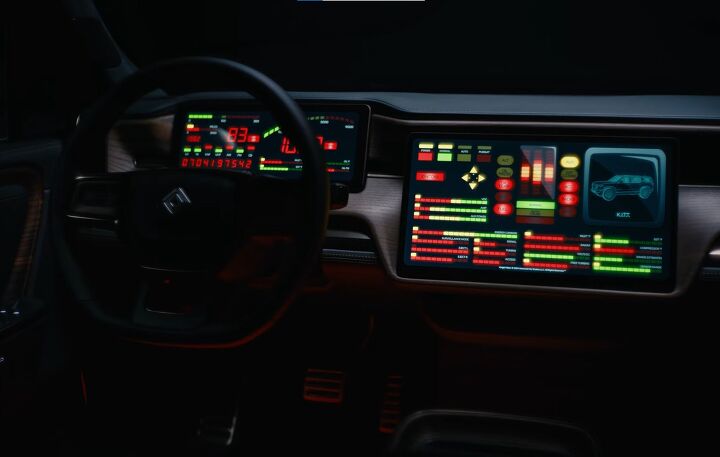With little more than a light clunk, body number 80210 was lowered onto motor 00847494, and front and rear suspension assemblies were bolted in. Trim went in, wheels went on, fluids were added, and brakes were bled. And so, on September 30, 1994, this Boston Green Metallic BMW 318Ti—one of the very first right-hand drive examples and possibly the first to enter the UK—was built at the factory on Munich’s Petuelring in the Milbertshofen district.
The Birth of TRF: From Factory to Dealer
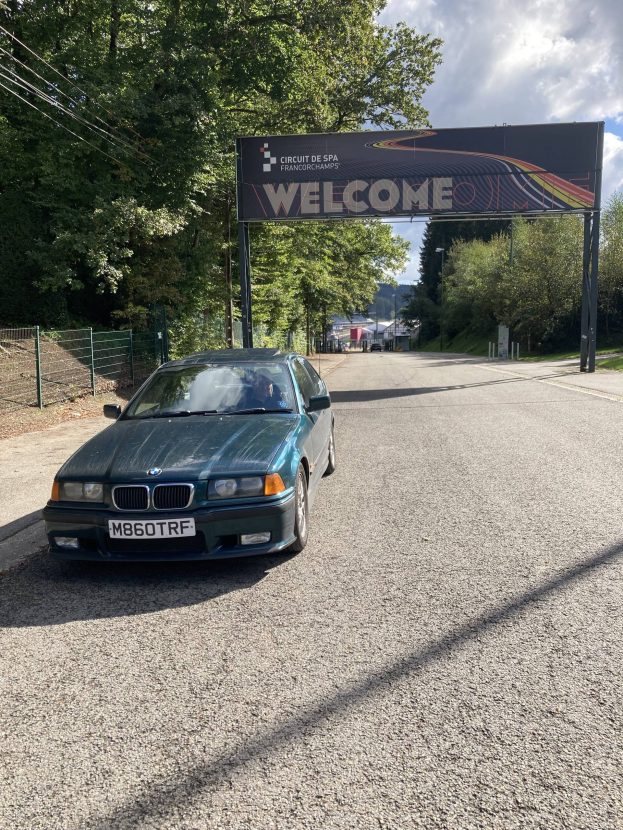
According to the build sheet, this one had ‘special dealer preparation,’ meaning it was a demonstrator. Optional extras included an electric sunroof, sports seats and suspension, fully body-colored bumpers, and front foglights. A day or so later, it left the factory compound on a truck bound for Hull, England, and from there, Stafford’s BMW dealer, Radford Bavarian.
Fast forward to May 2017, and M860 TRF is just about ready for scrap after seven owners and around 130,000 miles. It doesn’t run, both front fenders are rusty, as are the rear arches. The driver’s seat looks like it has been attacked by bears, the brakes and suspension are all rusty scrap, and honestly, I doubted the purchase price of £70.
But, it didn’t take long to get it running. Some fresh gas, cleaned-up plugs, and replacing the damaged starter motor-to-battery cable got it running. New plugs, a water pump, and an oil change completed the under-hood work, and it runs very well.
Rebuilding and Transformation
From here, the fenders were replaced with good used ones, the arches tidied up, and the suspension replaced with parts from a previous track car, plus a set of vented rotor 325i front brakes. After a lot of effort but not much money, TRF became a budget track car and was a common sight at Blyton, Cadwell, and Croft, as well as the first-ever BMW Car Club track day at Anglesey, North Wales.
Gradually, though, improvements were made. Regular sessions with bondo and skilled use of paint cans kept the rear arches in check. The BBS-style wheels were properly refurbished, and the track day suspension replaced by Boge equipment more suitable for road use—COVID killed my interest in track days, plus the car was getting a bit long in the tooth.
A BMW deviant friend of mine, Lee Jones, succumbed to cancer a couple of years ago, and I’d gone to his farewell event in Norfolk. On the way, I just happened to pick up a complete black leather interior for the Compact, and I arrived in said Compact, packed to the gills with another interior. I could hear him laughing from ‘up there’ as I turned up.
A Fresh Look: Bodywork and Final Repairs
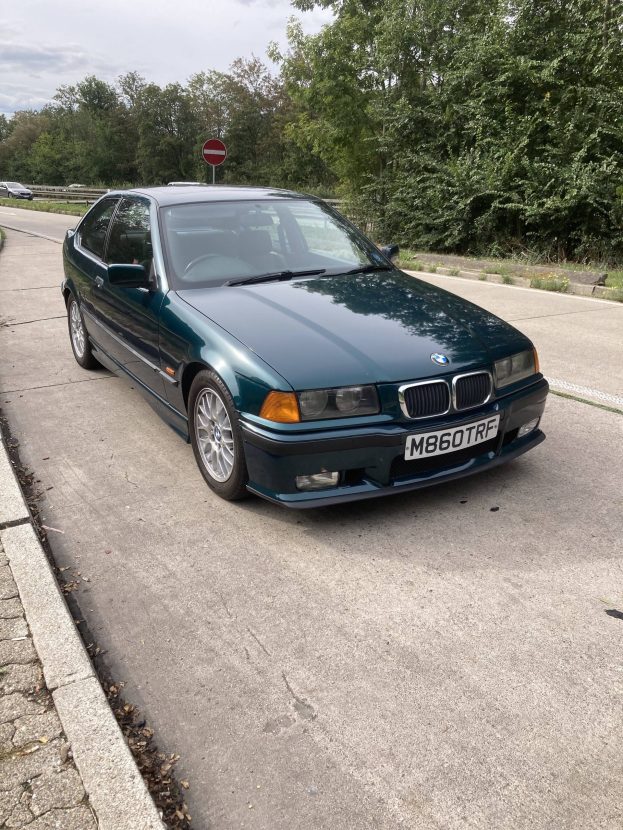
2022 saw TRF receive some proper bodywork attention. This time, a paint shop painted the entire nearside, plus the hood and both bumpers, and it was starting to look like a decent car again. Last winter, I lay under the bloody thing for about a week rebuilding the rear inner rockers, cutting out rot, making up repair sections, and then getting some dodgy character to plug-weld the new metal in. It came back all seam-sealed and painted, though, and it certainly looks good.
Definitely Munich, Maybe
The idea of taking the car back to the factory for its 30th birthday was hatched in June 2024. TRF was built on September 30, which fell on a Monday this year. I’d taken my E32 730i back to the Dingolfing factory on its 20th birthday in 2009 and enjoyed it. This time, my co-pilot and I would be in Europe for five days, planning to take in a few sights—more on that later.
As ever, I would be sailing from Hull to Rotterdam on P&O’s ‘Pride of Hull’ car ferry. At 706 ft long, it’s around 180 ft shorter than the Titanic, but it’s still a massive ship. At £430 return, it’s also expensive.
The crossing was booked in August in a fit of bravery. What am I doing? Am I mad?
The weeks ticked by, then it was down to days. Saturday, September 28, was departure day. The car had been checked over, front wheels balanced, levels checked, and a few spares carried—an ECU, crank sensor, plugs, fuel pump, alternator belt, plus some tools, a jack, and various fluids. There’s only so much you can carry and some blind faith in a 30-year-old car.
Then it was Saturday. No going back now. I drove to Chesterfield to pick up Nick, my co-pilot, and we were off. M1, M18, M62, and 80 minutes later, we were at Hull docks. Onto the ferry at 4:30, we parked the Compact, got our gear out—including a large amount of food and alcoholic beverages (forget paying ferry prices)—and found our cabin.
There’s a lot to be said for these overnight ferry crossings. I did my first one in 2002, going from Harwich to Hamburg when I lived there, and I’ve always enjoyed it. Have a few drinks and watch the evening cabaret. Tonight, it’s Ian Berry, followed by “It Takes Two”. Ian is from Hull and asking for requests. I shout out for Oasis and “Cigarettes & Alcohol” from their 1994 debut album “Definitely Maybe”—our request went into the charts on October 10, two days before TRF was registered.
Very appropriate, as is the Oasis sticker I applied to the tailgate the week before. Top, mad for it, sorted.
Road to Augsburg: A Marathon Drive
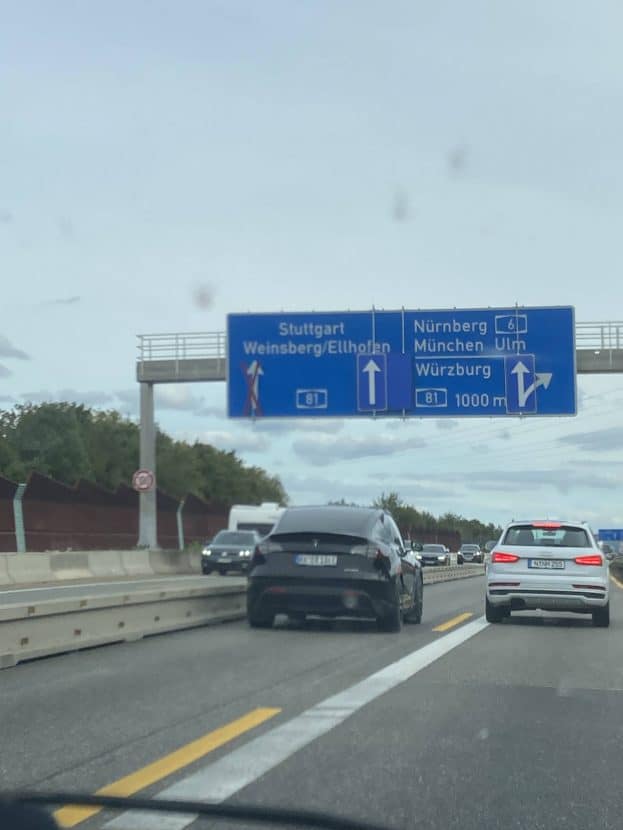
Sunday the 29th opens early with a glorious sunrise and a well-earned latte. By 8:30, the ferry has docked, and we are easing out from the ship and, once through passport control, onto the A15 out of Europoort and toward Rotterdam and beyond. Thankfully, Sunday is a no-trucks day, and we make good progress at a steady 70-80 mph average, bypassing Eindhoven, Bonn, Mainz, Stuttgart, and Ulm before reaching Augsburg at just past 5 p.m.—it’s been a long day with nearly 600 miles covered, thankfully with excellent weather.
Our pre-booked hotel, Hotel Augsburger Hof, is a very good one with an undercover car park where our 318Ti can take a well-earned rest. We dine at a small but good restaurant nearby, and that’s Sunday dealt with. One thing we’ve noticed is that there are nowhere near as many BMWs as there used to be—Mercedes-Benz and Audi are far more numerous. Are German buyers shunning the latest stuff? Not much of it appeals to me.
Homecoming: Returning to BMW’s Munich Factory
Monday morning dawns gray and drizzly but with a decent forecast for later on. After a good breakfast, we congratulate the Compact for making three decades before loading up and heading off to Munich, where the sun has appeared. By 10 a.m., the worst of Monday morning traffic has been and gone, and our journey to Milbertshofen is easy enough. We drive along the Petuelring, and there’s the Olympic stadium on the right.
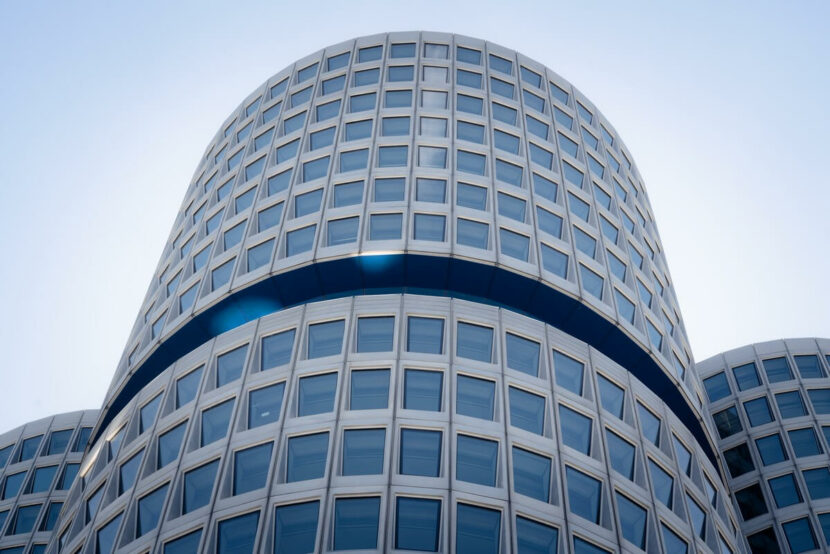
Then, the massive BMW Four-Cylinder building comes into view—close now. Then a junction and a left turn onto Lerchenaustrasse, followed by an almost immediate right onto Dostlerstrasse, and we’re there—BMW Werke Tor 1, the main entrance. We park on the pavement outside the entrance to the Four-Cylinder, get out of the car, and savor the moment. Thirty years ago, overalled workers streamed through this gate to build cars, including this one. An older couple walks past and compliments the car. “Dreißig Jahre alt heute!” I tell them.
Exploring BMW Classic and the Streets of Munich
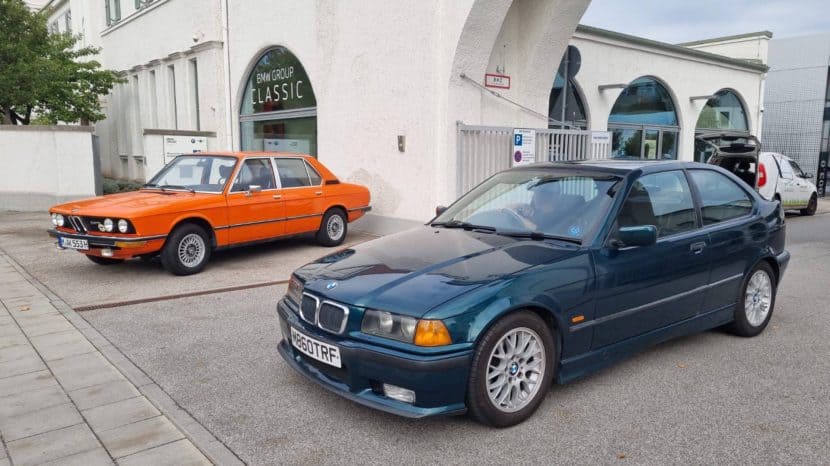
After twenty minutes and some photos, it’s time to move on. We go back along Dostlerstrasse, turn right back onto Lerchenaustrasse, and drive a mile or so to the next junction, past the gates where a completed TRF would have left on a car transporter. At the next junction, we hang a left and immediately pull into the premises of BMW Classic on Moosacher Strasse. Outside is a 1974 E12 525i in Inca Orange, a survivor car with some minor rust but lucky to be alive.
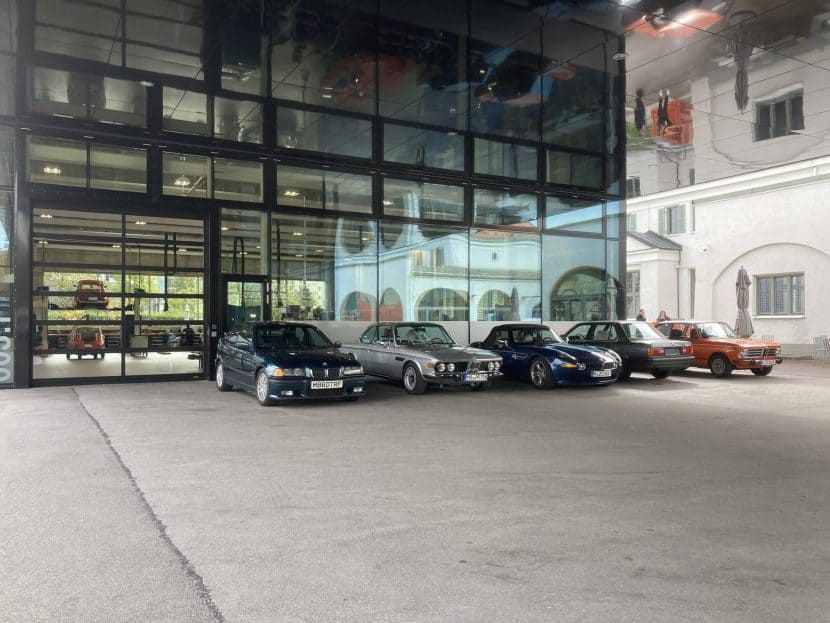
We have a wander around unchallenged while technicians move cars around and customers bring their cars in. A 2002 comes in and is driven straight into a workshop, where we see an E38 750i bare shell, freshly painted and awaiting assembly. We spot three Z1s and an M Coupe in a bizarre Individual green. The cafe serves us coffee for a few euros, we admire the golden oldies, and then it really is time to go.
Next stop: Nuremberg to see the unfinished Kongresshalle, an Albert Speer production that 1945 put a halt to.
The weather in Munich is very pleasant as we head north, and it feels sad to leave so soon after we drove so far to be here. Was that it? But we made it and proved a point that a 30-year-old E36 can do this sort of thing.
Reflections on Germany’s past and an impactful visit to the Kongresshalle
As we leave Munich and head north up Autobahn 9, the weather deteriorates, and by Ingolstadt, it really is grim. We stop to refuel, and I work out the gas mileage as 36 mpg—not bad. Nuremberg is reached by 1 p.m., and we head into the old town. A walk into town finds us some good German fast food (clue: sausages are involved) and a look around. Then we head for the Kongresshalle. The sheer size of this edifice is astonishing.
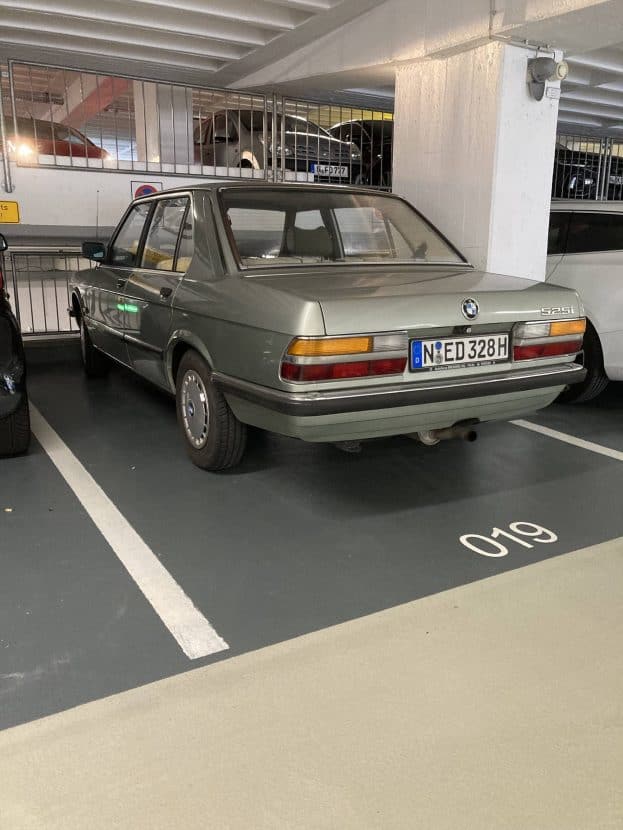
Six euros got us a walk around the place, but as it was Monday, a look at the nearby Zeppelin Field and the Zeppelinhaupttribüne. Some say it’s ghoulish; I say it’s as important a part of history as the Rome Colosseum. I spotted a lovely Opal Green 1983 E28 525i as well, so the trip was even better. From here, it’s a short run northwest to Bamberg.
You’ve heard of those quaint German towns that have remained unspoiled for centuries—well, this is one of them. We find a cheap Ibis, park the car, and head into town looking for food. After several packed bars and restaurants, we find Brasserie on Pfahlplätzchen, and after an excellent steak comes the first of very many gin and tonics. I think I put away about nine before giving up. Nick stuck to several bottles of Weissbier (yuk). The bill came to 120 euros or $130 in real money, which is reasonable.
We explain to the young bar staff why we are in Germany and show them a photo of the Compact. “Cool.” It seems that everyone likes old cars. It has been a long one, packed with all kinds of emotions.
The Nürburgring Revisited
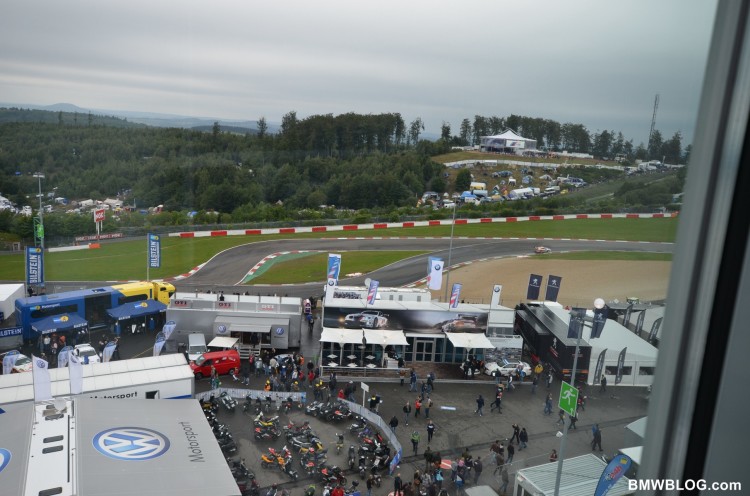
Tuesday morning starts with a plan to drive to the Nürburgring. Nick wants to see it; I’m absolutely done with the place and in no way am I driving around. Bamberg to the nearest city, Koblenz, is a real ballbreaker, but we get there by 2:30 p.m. From there, it’s an hour or so to Adenau, where hotels are expensive and a quick look at the ‘Ring from a couple of vantage points.
I really do not miss this place one bit. The circuit is one thing—tricky but quite good fun—but the Nürburgring legend nonsense that comes with it is another. When I first went in 2001 with a rented Opel Astra 1.4, a lap cost five dollars. Now it’s around $40, and it’s all so corporate… It’s more famous than it is good, put it that way. There is a much better circuit nearby.
Through Belgium: Bastogne and Spa Francorchamps
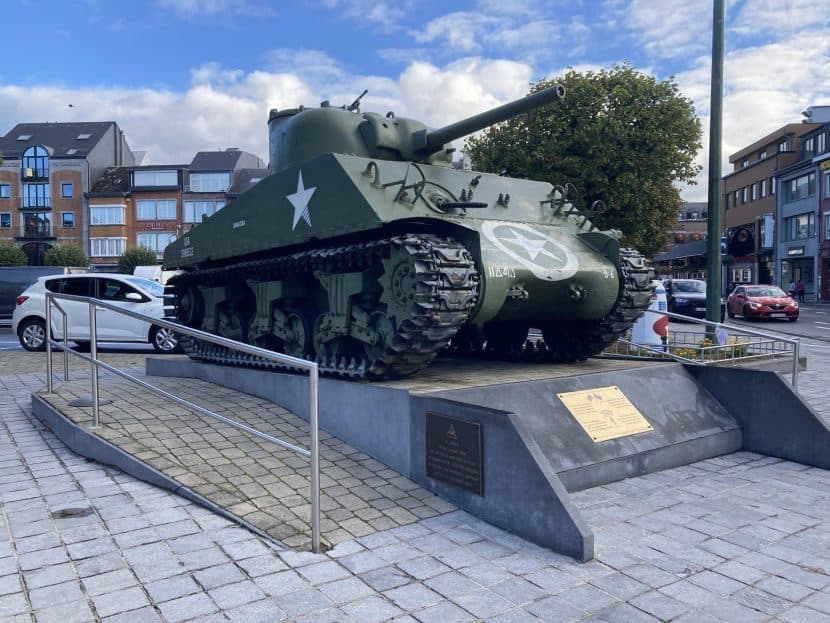
But for now, we’re forgetting Germany and heading for Bastogne in southern Belgium, where it meets Luxembourg. We get there around 6 p.m., find a bizarre but cheap hotel, and eat in a very, very nice restaurant, the Complètement Toqué in the town square, where you will also find a Sherman tank.
Wednesday is our last full day, and we start by visiting the 101st Airborne Museum, which is quite astonishing—you can easily lose a couple of hours in there, and it’s clear that so much effort and imagination went into it. Bastogne is where the outcome of World War II was finally decided, as the American and German armies slogged it out in the terrible December cold and snow, fighting over Christmas with appalling casualties.
From Bastogne, we head up to Spa Francorchamps to see if anything was happening at the circuit. Well, not much apart from some Porsches practicing, but it’s always nice to come here. It’s also free on a day like this. Park up, wander in, and get an idea about the place. It’s everything the ‘Ring is not—unassuming, quiet, and utterly unruined by corporate greed. Plus, it’s in southern Belgium, one of my favorite places in Europe.
Final Stretch: Belgium to Breda
With one full day to go before heading home, we make our way up through Belgium on the E25, skirting around Liege and up past Maastricht, Genk, Lommel (do Ford still have a test center there?), and across the border into Holland. Hotels are much cheaper in Breda than in nearby’s-Hertogenbosch, so Nick finds an excellent new hotel called the Intercity with two rooms for about $80 each—that’ll do. Rather than eat in the hotel restaurant, Nick wanders off and finds a superb outdoor bistro-type place called T-Huis, which serves us some excellent food and plays excellent music for the three hours and many drinks we’re there.
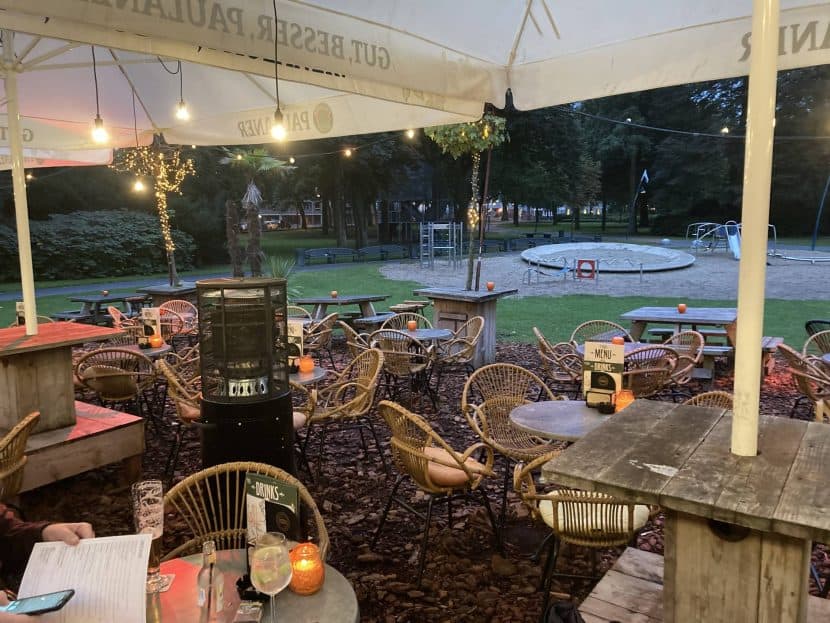
Thursday is ferry day—so a 10 a.m. breakfast at the hotel and a steady meander toward Europoort, taking in a few small villages and finding a supermarket where we can stock up. The weather is the same as when we arrived, and it’s kind of mournful to see cars heading away from the port. Only five days ago, we were there, setting off, praying for good weather and a reliable car—we got both.
Was it Worth It?
I think so. It’s nice to escape for a few days and experience how nice Europe is. Would I do it again? Maybe, maybe not. It’s a lot of miles to cram into such a short space of time, and it was probably the wrong car to do it in—another three or four days would have allowed us to see much more, but it would have cost another £500.
But… WE DID IT!
[Photos provided by Andrew Everett]
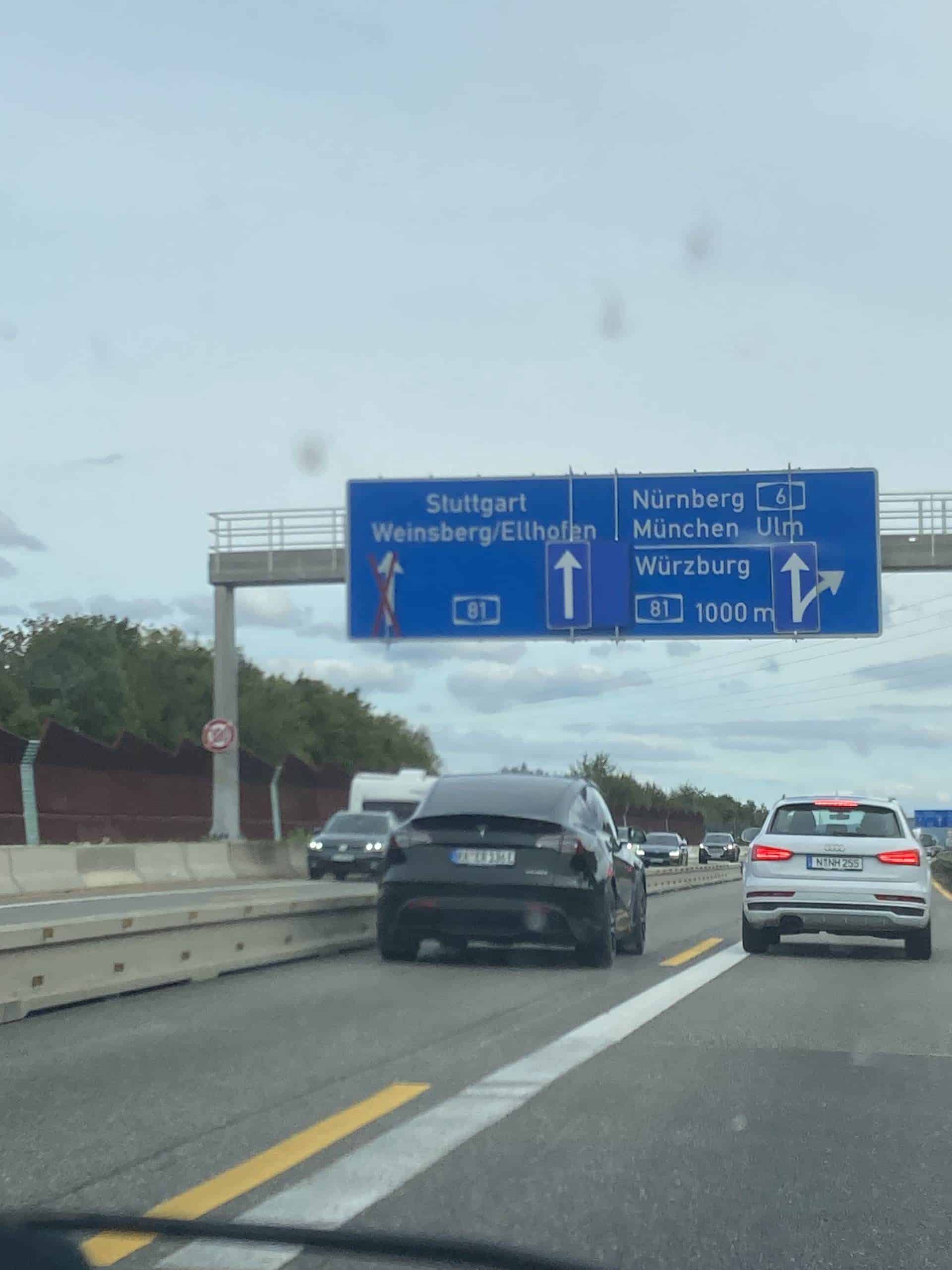
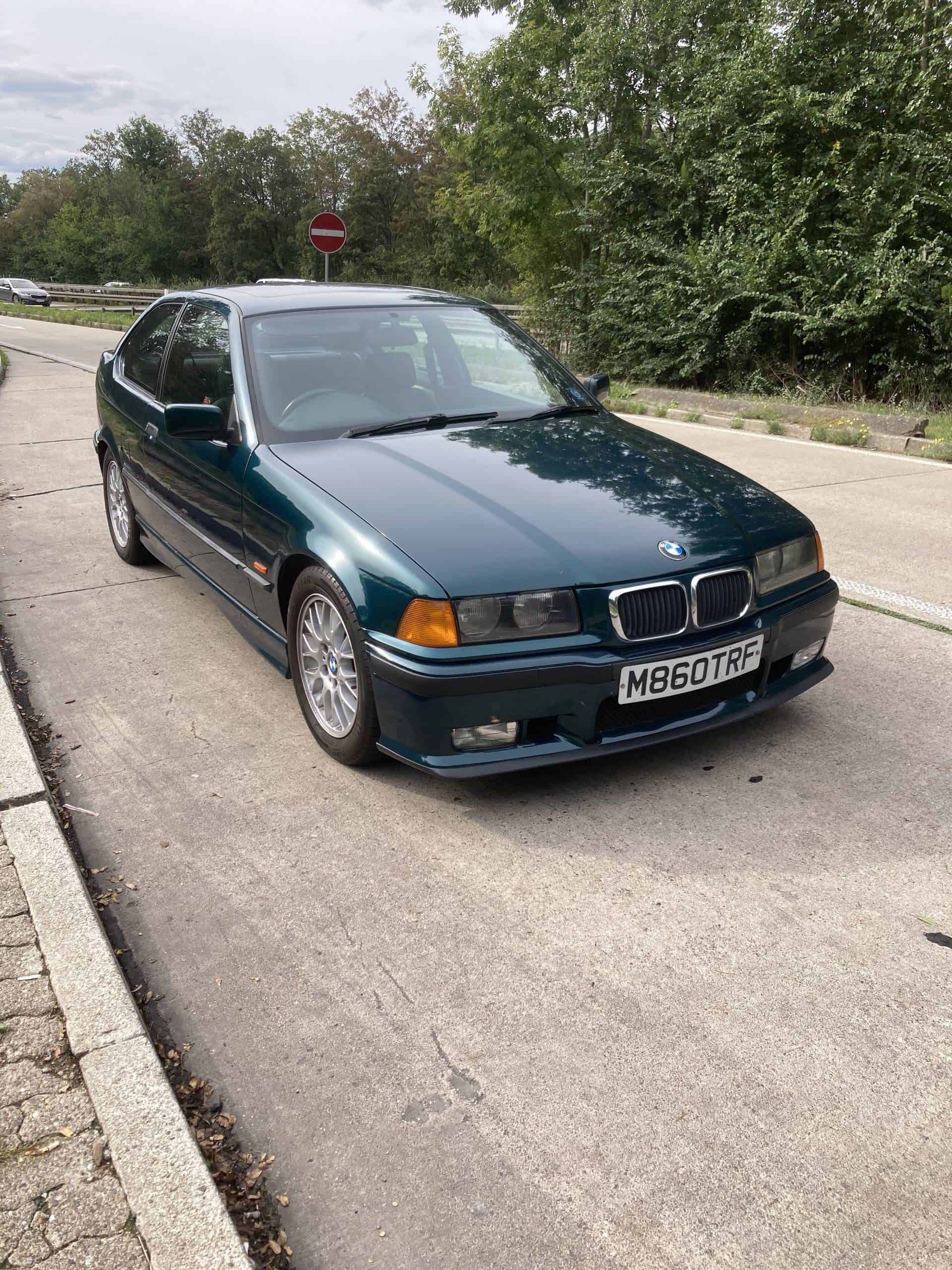
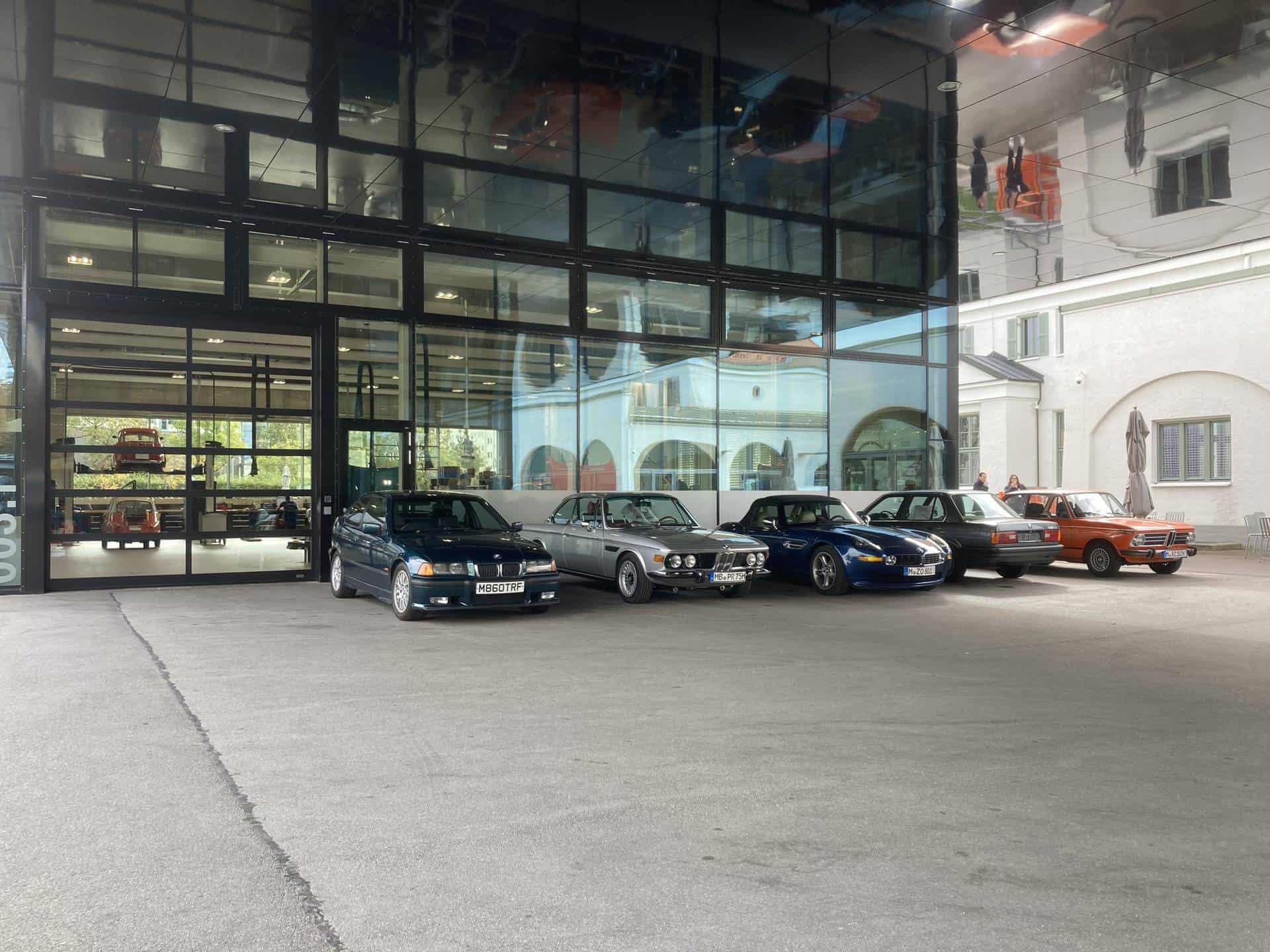
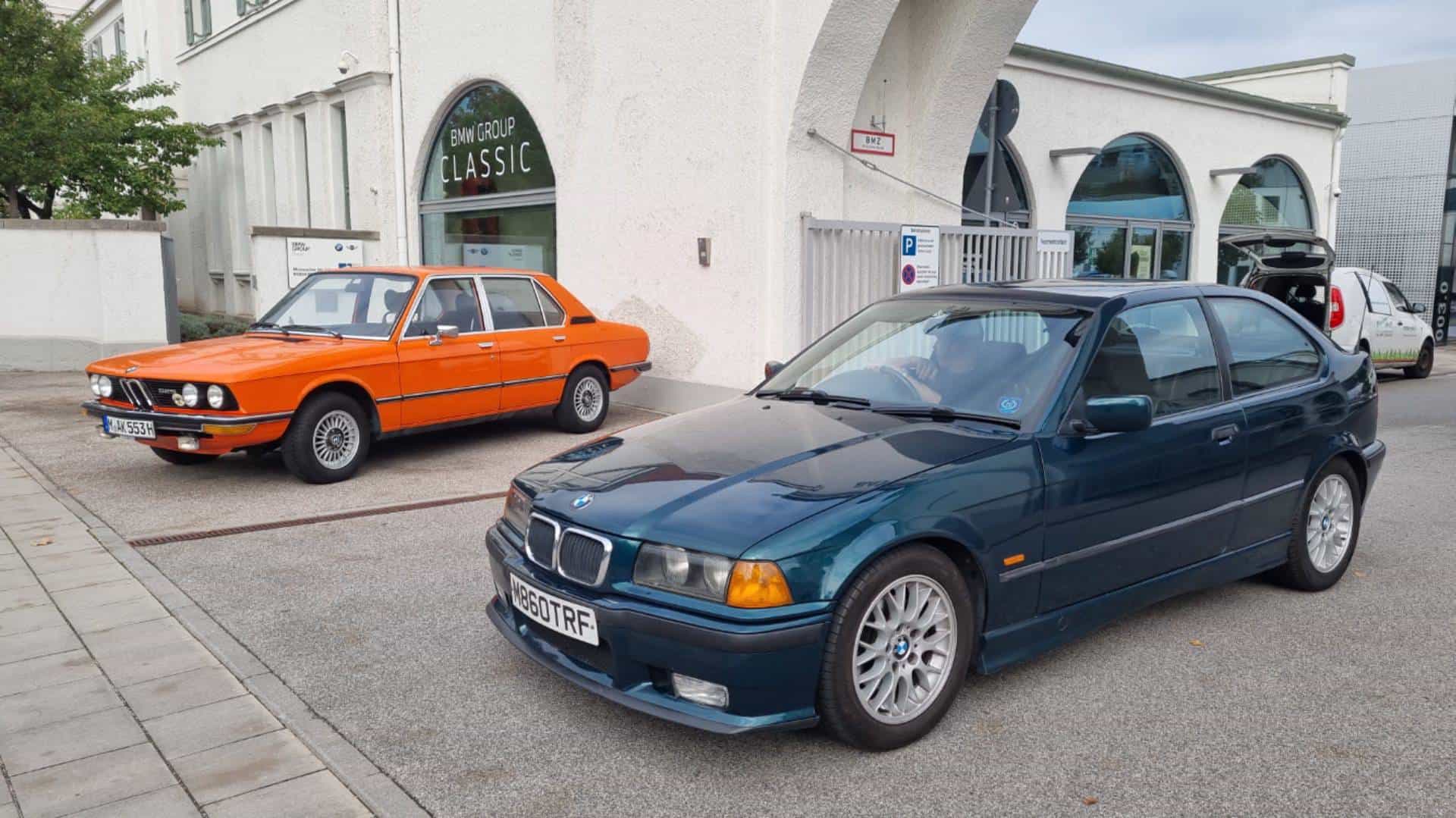
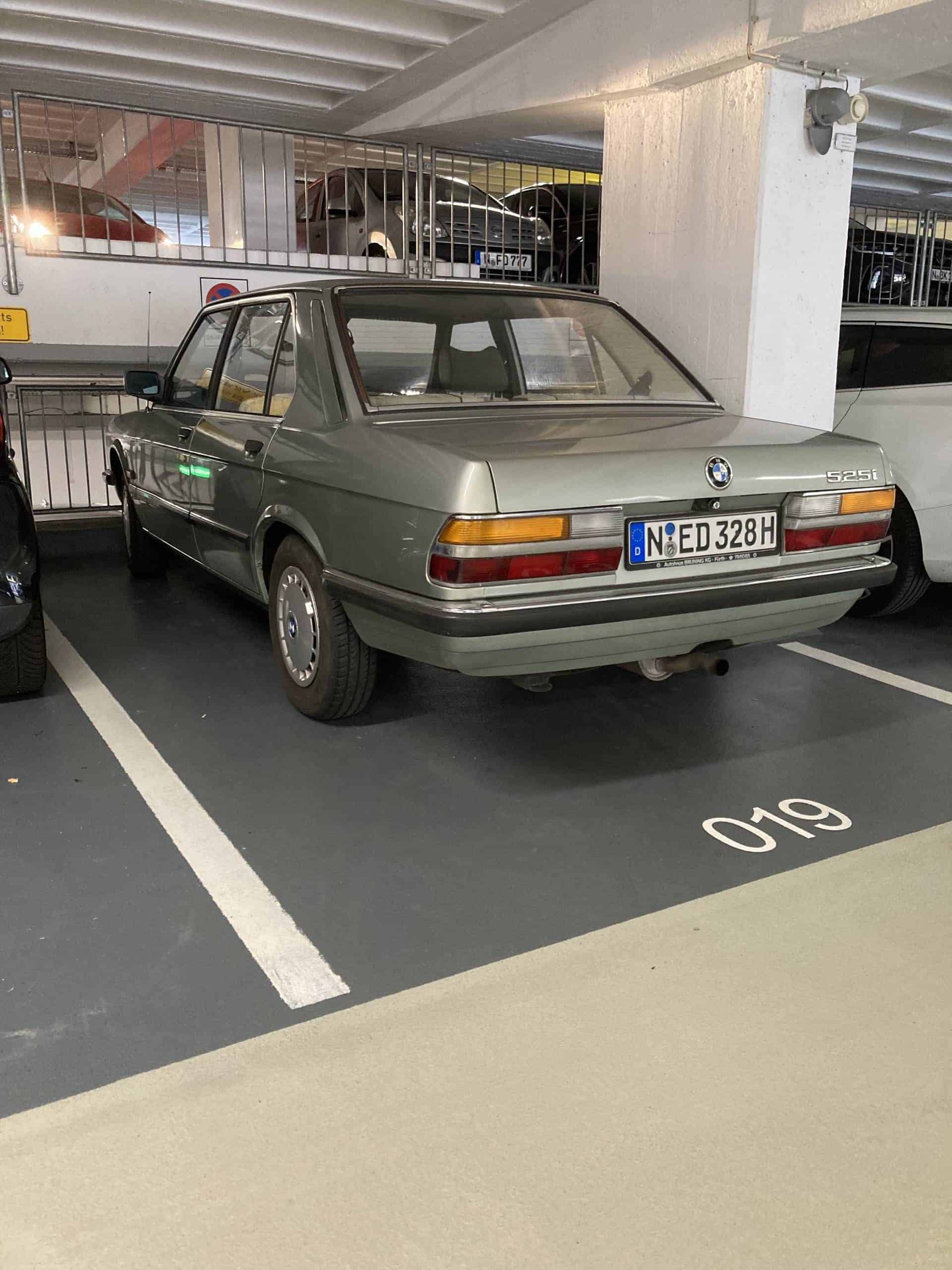
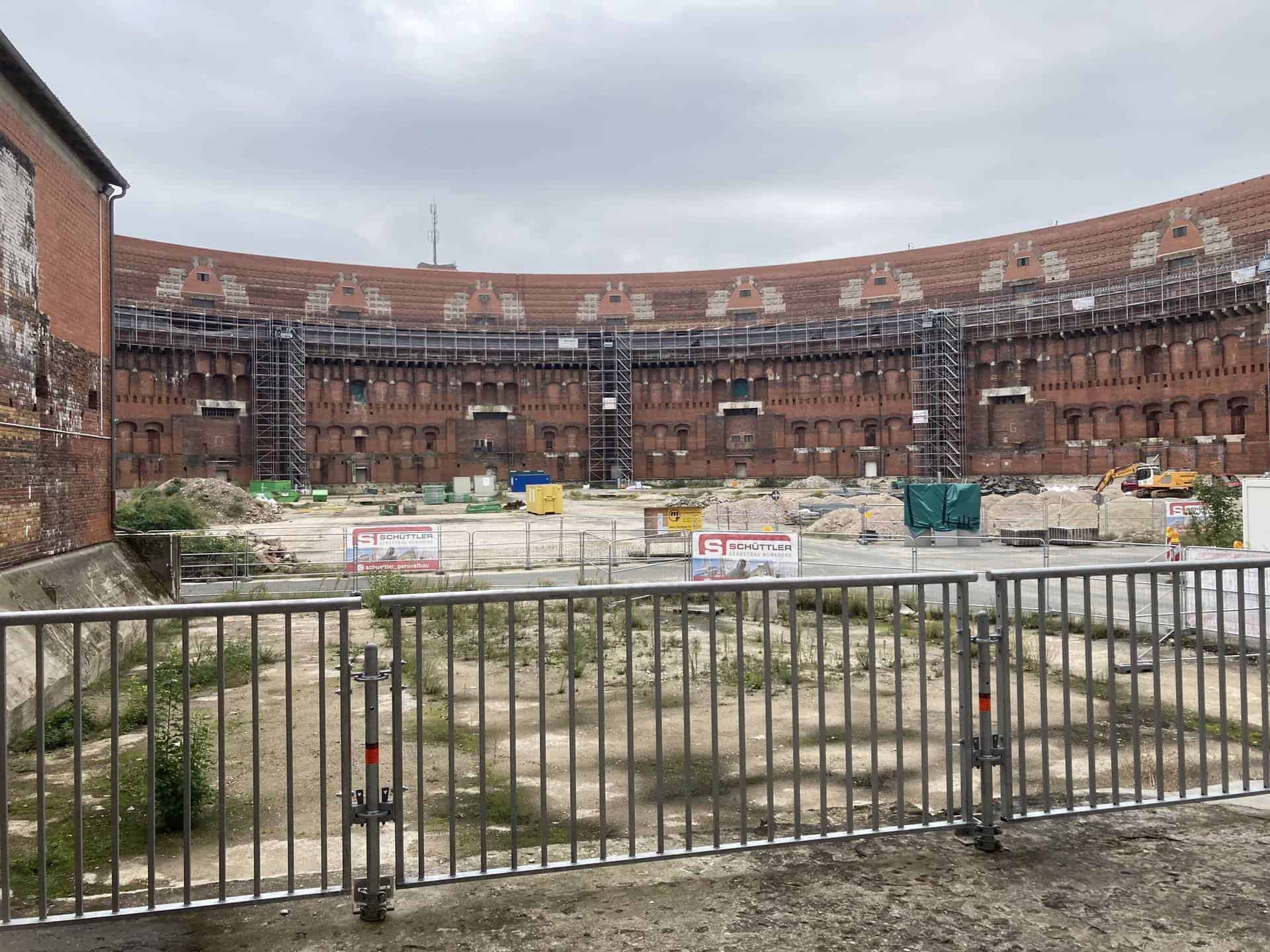
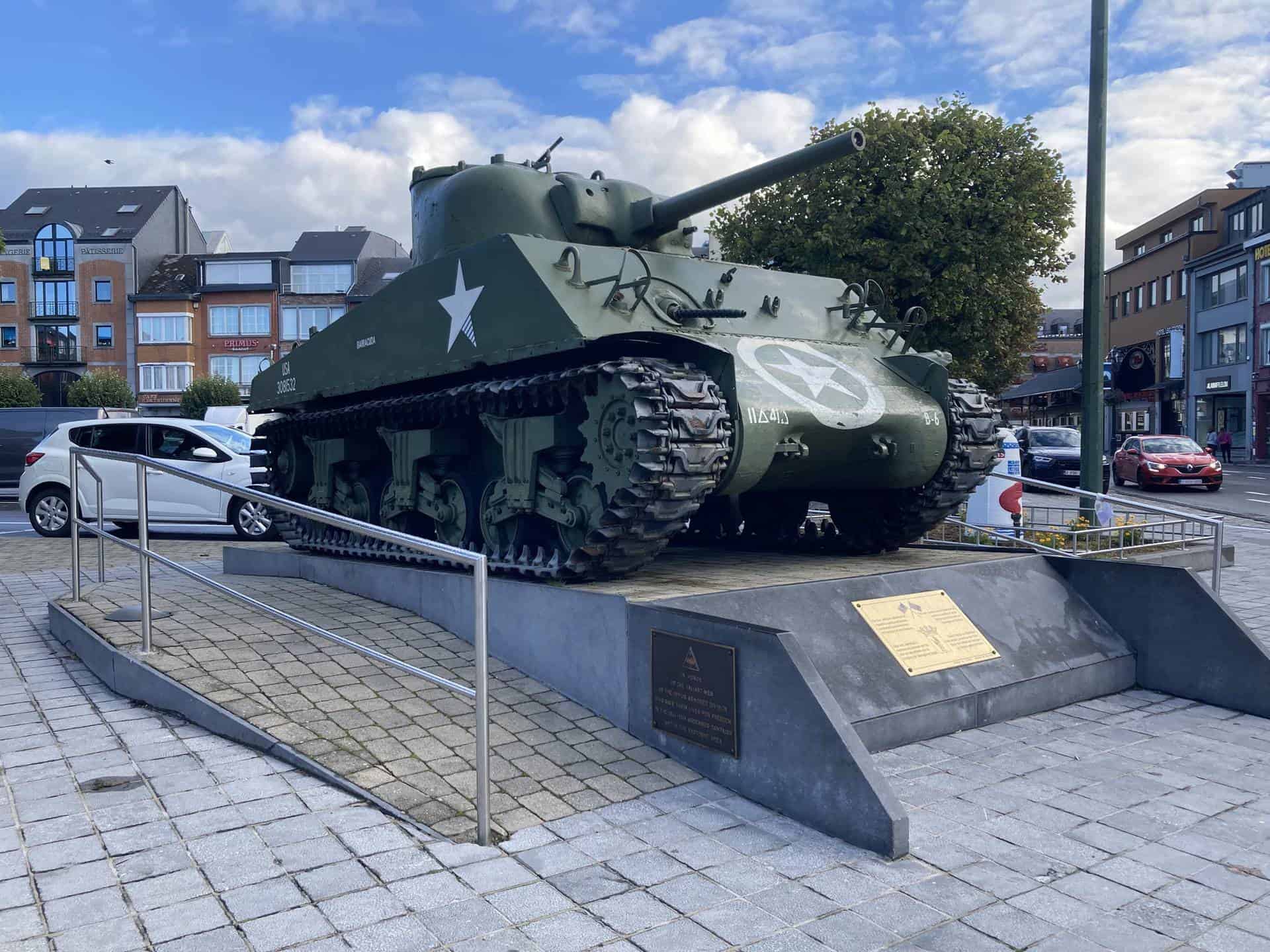
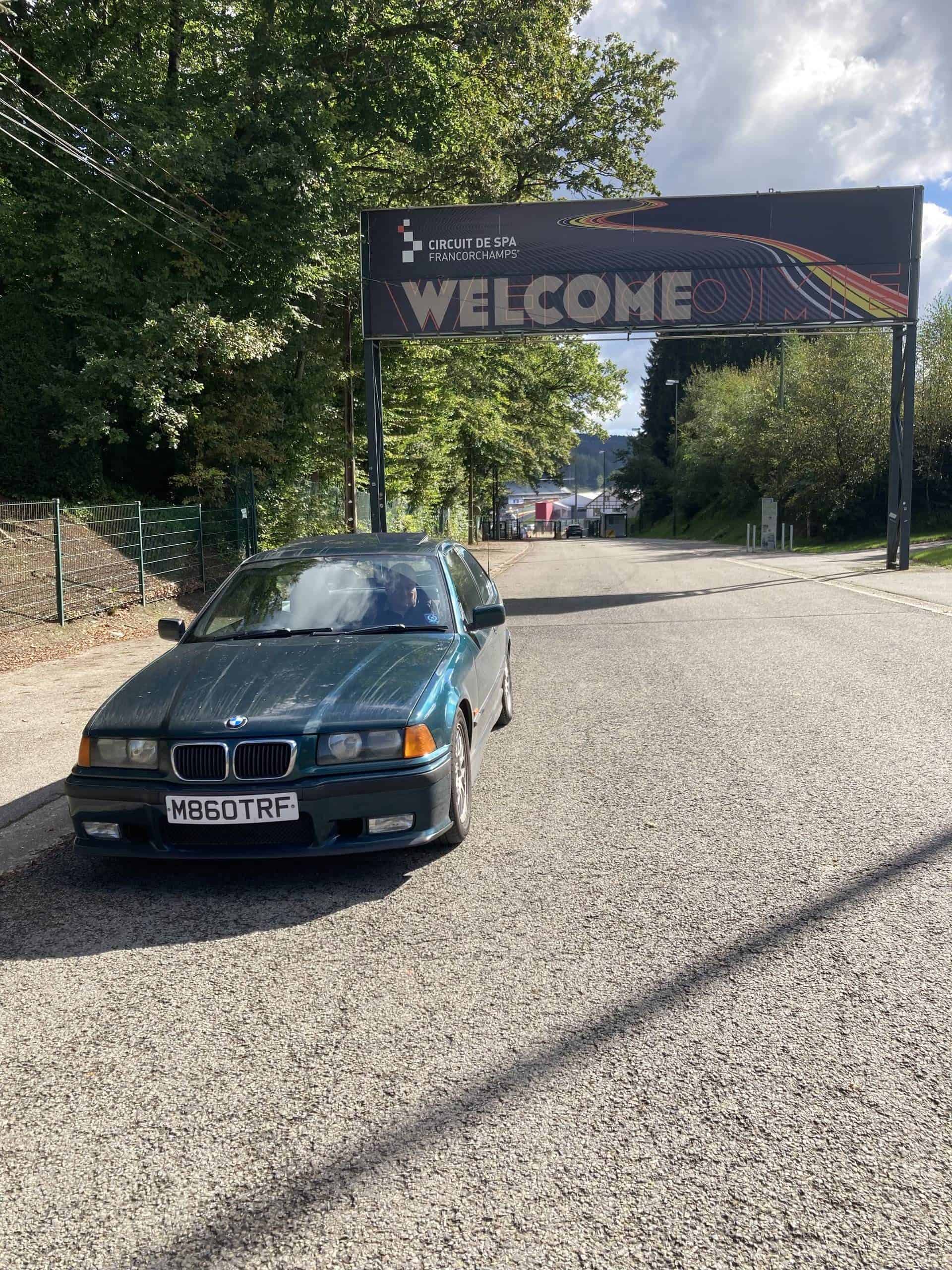
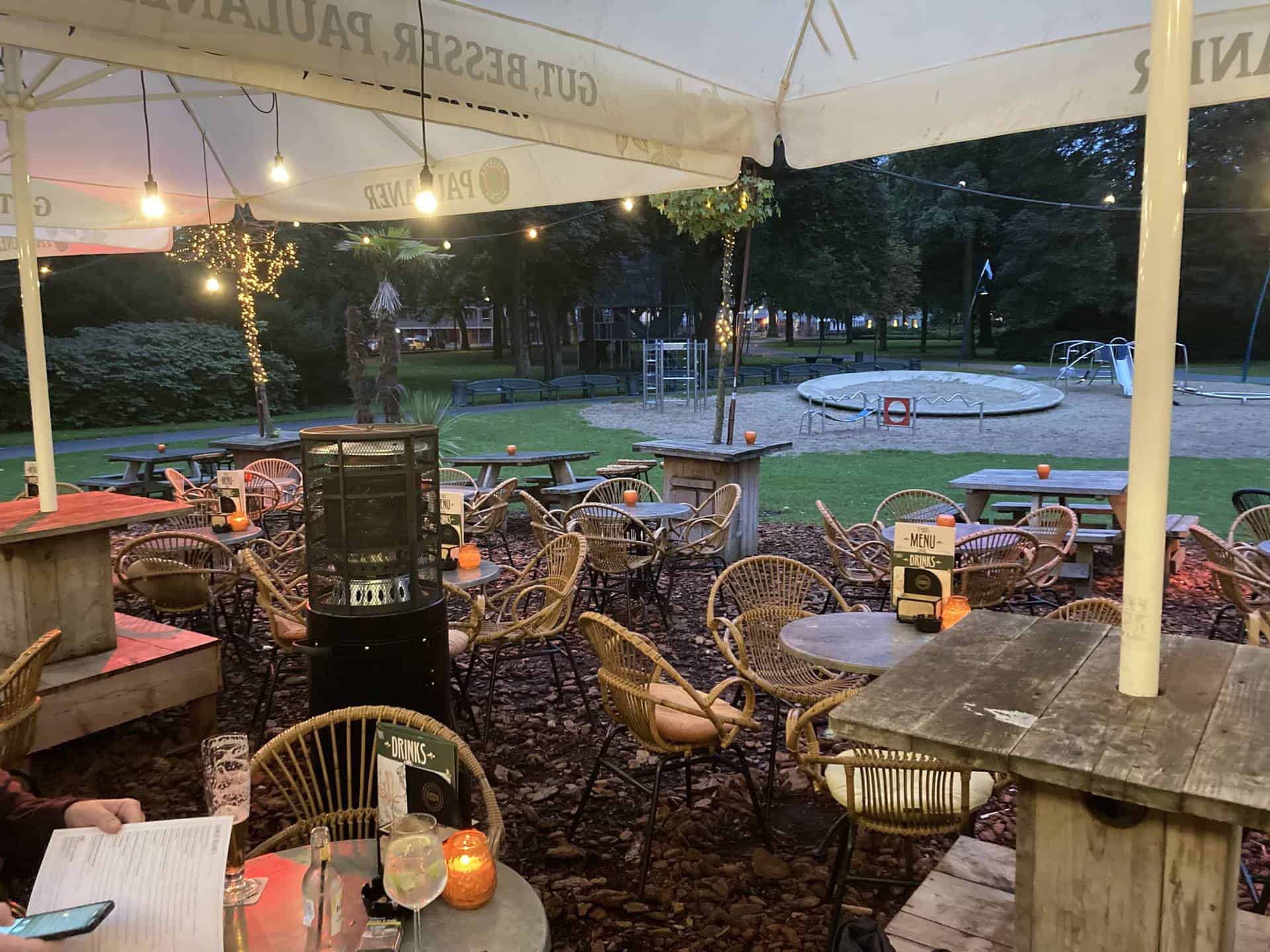
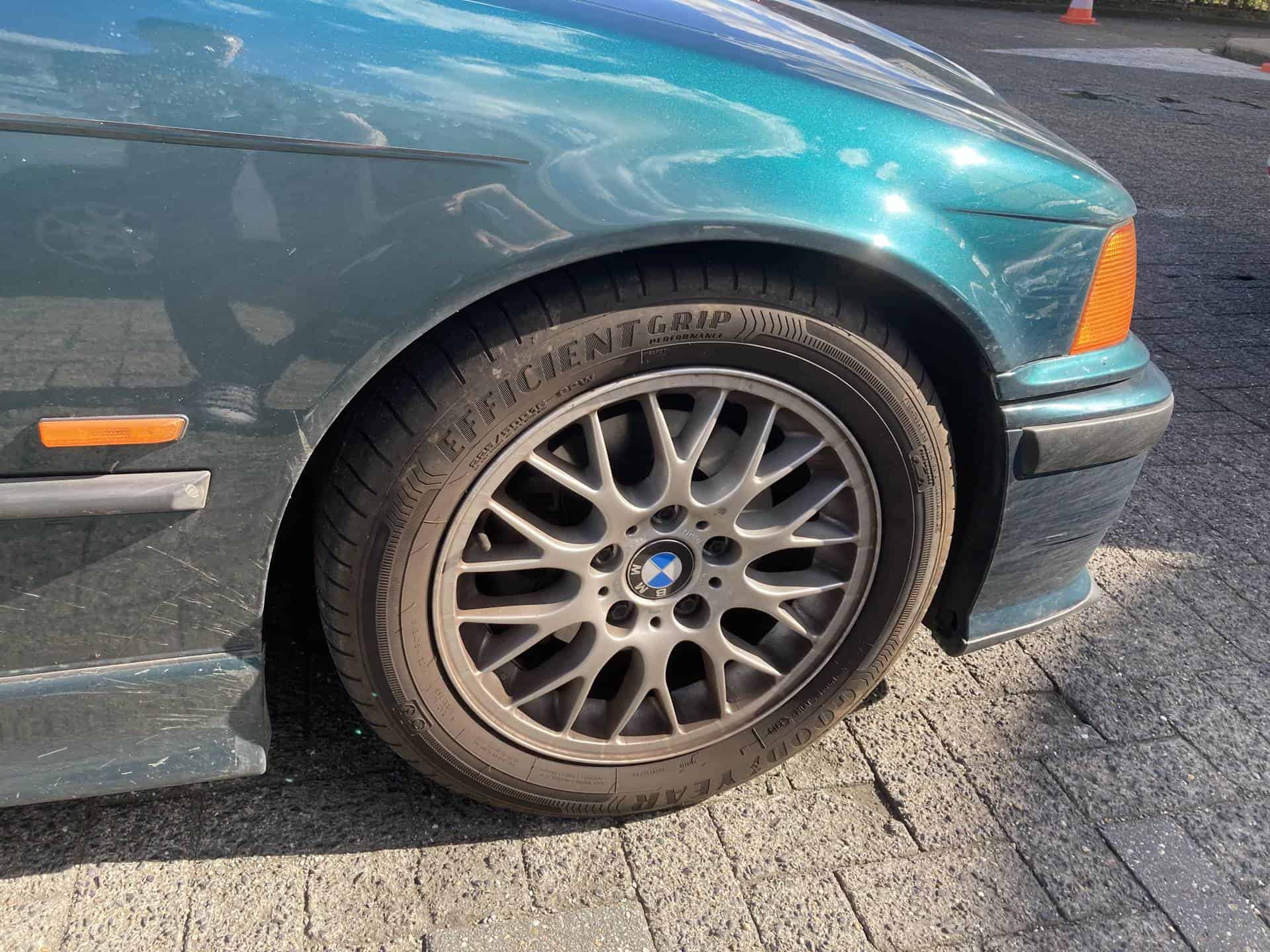
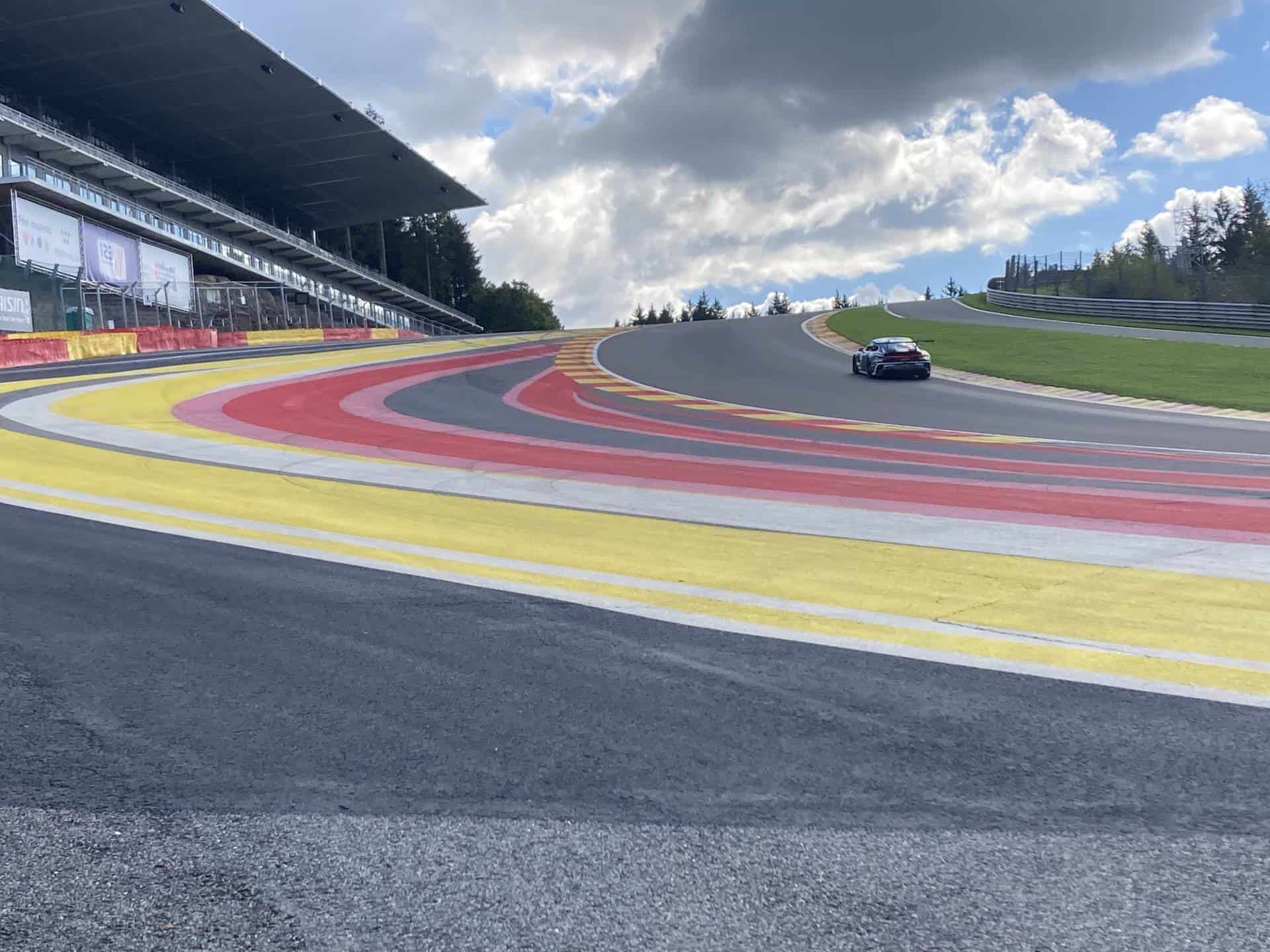
First published by https://www.bmwblog.com
Source: BMW BLOG
